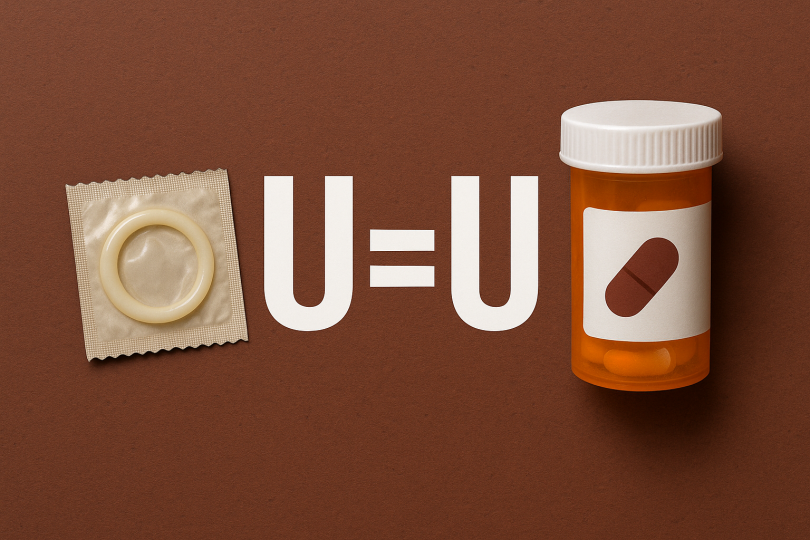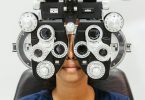In 2008, Nick Rhoades who is living with HIV, albeit having an undetectable viral load for many years, had sex with a man he met online using a condom. Scientifically, the protective measures meant that he could not sexually transmit the virus. However, he was prosecuted and convicted for not disclosing his status and sentenced to 25 years and added to the lifetime sex offender registration.
Like Rhoades, many others have been convicted and sentenced for not disclosing their HIV status even when they have undetectable viral load, which means they cannot transmit the disease. There has been an ongoing debate on whether anyone should disclose their HIV status if they have undetectable viral load and non-infectious.
In April 2024, the HIV Criminalization Task Force created by the Louisiana legislature published a White Paper recommending the modernization of a section of the law to reflect the current risk and routes of HIV transmission. The report suggested “full repeal and updating the language in the law.”
HIV Nondisclosure, Exposure, and Transmission
As of 2024, 156 countries had laws criminalizing HIV non-disclosure, exposure, or transmission. Out of that number, 86 countries had HIV-specific criminal laws, while 45 countries have broad laws around communicable diseases. For clarity, let’s discuss the contentious terms misused in HIV criminalization laws.
- HIV non-disclosure: This is when a person living with HIV fails to inform a sexual partner or a healthcare provider about their status. Stigma and fear of rejection are usually the leading cause of non-disclosure
- HIV exposure: This is when a healthy person gets in contact with certain body fluids of a person living with HIV, including blood, semen, vaginal fluids, breast milk, and rectal fluids, which could lead to infection. You cannot get HIV from sweat and saliva. Therefore, exposure cannot be said to have happened from spitting incident
- HIV transmission: This is when a healthy person becomes infected with HIV after contact with the aforementioned body fluids of a person living with HIV
The HIV Justice Network identified 395 HIV-related legal cases in the media worldwide between January 2019 and June 2024. According to the Williams Institute, University of California, Los Angeles, Black men:
- Make up three-quarters of HIV-related convictions in Georgia
- Comprise over half of all HIV-related convictions in Missouri
- Are most likely to be arrested for HIV-related felonious assault in Ohio
- Account for over half of HIV-related one or more years prison sentence in Florida
The staggering figures point back to systemic racism that has led to stigma and the over-policing of the Black community. Black men are often arrested for consensual sex without disclosure, even when the risk of HIV transmission is nonexistent.
Unlike in the past when HIV was seen as a death sentence, people living with the virus who take their medications properly—and have achieved undetectable viral load—and use protection can rarely transmit the disease. This puts a question mark on the idea of disclosing undetectable status.
The Problem with HIV Criminalization Laws
HIV criminalization laws are often applied without consideration of the current scientific understanding of the disease. For example, the HIV Justice Network identified 11 HIV criminal cases related to spitting and seven related to biting, notwithstanding that, according to UNAIDS, HIV is not known to be transmitted through saliva or bites where there is minimal blood. Some of the problems with the outdated HIV criminalization laws include:
- Does not reflect modern science: Some of the laws used to prosecute people living with HIV were written in the 1980s and 1990s when little was known about the virus. Today, antiretroviral therapy (ART) can reduce viral load to undetectable levels. According to current science, Undetectable = Untransmittable (U=U). Criminalizing people who pose little or no risk of transmission is not supported by science.
- Criminalizing HIV discourages testing and care: Criminalizing HIV discourages individuals living with the disease from getting tested or seeking proper care, thereby worsening their health. This sets public health efforts backwards.
- Violation of human rights: International human rights experts maintains that HIV criminalization violates human rights to privacy, equality, and nondiscrimination, all of which impedes prevention and treatment efforts.
- Disproportionately impacts Black women: According to the Williams Institute, most US States’ HIV laws target sex work, thereby disproportionately impacting Black women who are likely first to learn their HIV status and may be vulnerable to false accusations or misuse of the justice system.
- Ineffective for HIV prevention: HIV-specific criminal laws are intended to curb the spread of the virus. However, there has been no evidence that broad criminal laws prevent HIV transmission, rather, they stand on the path of prevention efforts.
How HIV Criminalization Impacts Black Communities
Historical factors like limited access to care, policy changes around medication, and limited socio-economic opportunities has led to high rates of HIV infections in Black communities.
A 2024 report by the Williams Institute at UCLA School of Law said HIV-related criminal laws in Maryland were enforced disproportionately based on race and gender, with Black men being overrepresented in HIV-related crimes. Although the Black community make up 30% of Maryland’s population, they account for 71% of people living with HIV and 82% of people charged with HIV-related criminal cases.
HIV stigma is still prevalent in Black communities around the globe. This stigma manifests in different forms, including fear, prejudice, and discrimination. In some Black communities, HIV is perceived as a sign of moral failing or a punishment from God.
Laws criminalizing HIV further reinforce this stigma and the impact on the physical and mental health of affected individuals can be devastating. The fear of stigma and prosecution discourages HIV testing and open communication with providers, undermining public health efforts.
The Push for Modern Laws on HIV
Advocates are working to repeal or reform laws to reflect scientific understanding of HIV transmission and promote equity. In 2012, civil society groups adopted the Oslo Declaration on HIV Criminalization, which calls for an end to HIV-specific criminalization, emphasizing that it violates human rights.
International human rights organizations suggest that the application of general criminal law should be limited to cases of intentional HIV transmission, especially when a person knows their status and acts with the intention to transmit the virus.
According to the Joint United Nations Program on HIV/AIDS, “The harm of HIV nondisclosure or potential or perceived exposure, without actual transmission, is not sufficient to warrant prosecution and should not be criminalized”.
The push for the phasing out of outdated HIV-specific criminal laws should be accompanied by community-level interventions. We all can make a difference by:
- Educating ourselves and other on the accurate modes of transmission of HIV and how to protect ourselves from the virus.
- Supporting advocacy organizations through volunteering or sharing their social media posts and campaigns to our networks.
- Engage politically by writing to our legislative representatives on the need to repeal unproductive and outdated HIV criminalization laws.
- Share evidence-based policies that would actually make a difference in the fight against HIV and push for their adoption.
- Support people living with HIV to end the stigma and discrimination around the disease.
EBH has useful resources intended to create awareness on HIV and separate the facts from the myths. Our goal is to reduce negative perceptions and encourage our people to know their status and seek help when needed.
For More Reading
- 2023-2024 Report of HIV Criminalization, (HR 130) Task Force (2024). https://www.hivlawandpolicy.org/resources/2023-2024-report-hiv-criminalization-hr-130-task-force-2024
- HIV: Prosecution or Prevention? HIV Is Not a Crime. https://www.poz.com/article/hiv-prosecution-prevention-not-a-crime
- HIV Criminalization: Human Rights Fact Sheet Series. https://www.unaids.org/sites/default/files/media_asset/01-hiv-human-rights-factsheet-criminalization_en.pdf
- HIV Criminalization and Race. https://williamsinstitute.law.ucla.edu/wp-content/uploads/HIV-Crim-and-Race-Infographic.pdf
- Teen Health: Respect, Consent, Real Relationships. https://www.elevateblackhealth.com/teen-health-respect-consent-real-relationships/
- Impact of HIV on Black Mental Health. https://www.elevateblackhealth.com/impact-of-hiv-on-black-mental-health/
- Impact of Trump’s HIV Medication Ban. https://www.elevateblackhealth.com/impact-of-trumps-hiv-medication-ban/
- Black people account for 82% of HIV-related criminal cases in Maryland. https://williamsinstitute.law.ucla.edu/press/hiv-crim-md-press-release/
- Ending overly broad criminalization of HIV non-disclosure, exposure and transmission: critical scientific, medical and legal considerations. Geneva: Joint United Nations Programme on HIV/AIDS. https://www.unaids.org/sites/default/files/media_asset/20130530_Guidance_Ending_Criminalisation_0.pdf
- Revisiting HIV/AIDS Prevention in Black Community. https://www.elevateblackhealth.com/revisiting-hiv-aids-prevention-in-black-community/
- How Church Can Positively Impact Mental Health. https://www.elevateblackhealth.com/how-church-can-positively-impact-mental-health/








